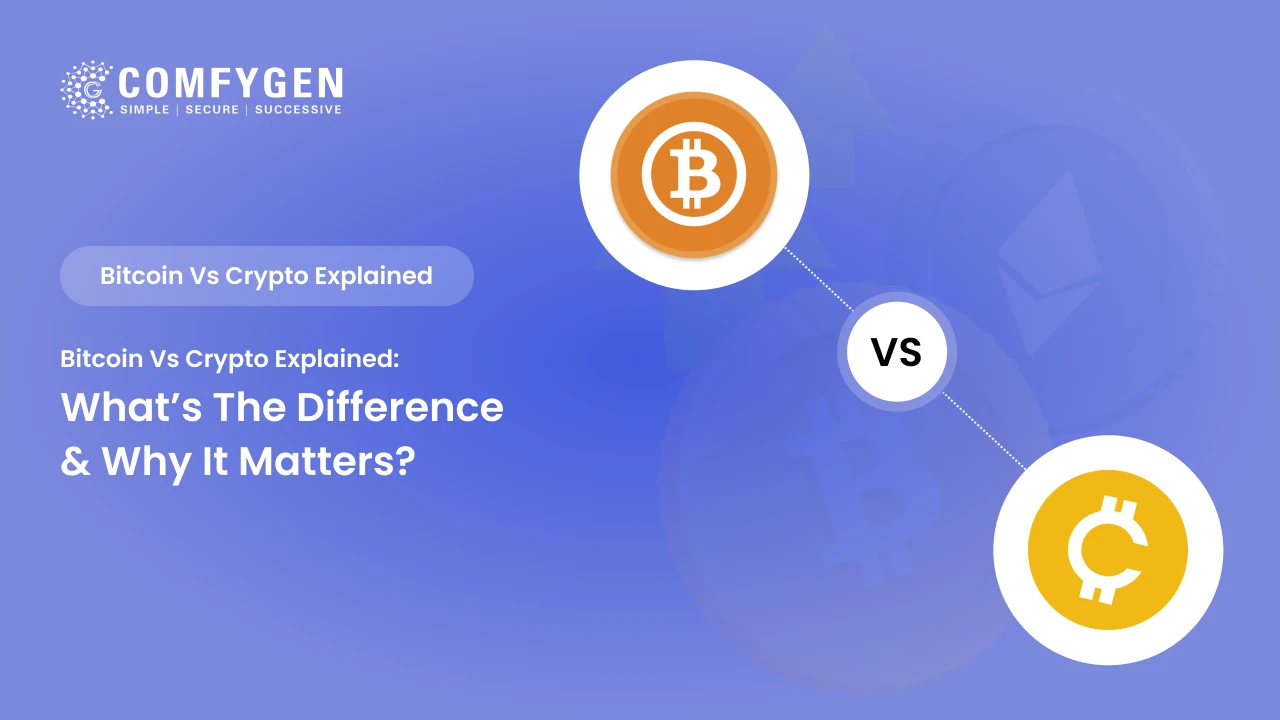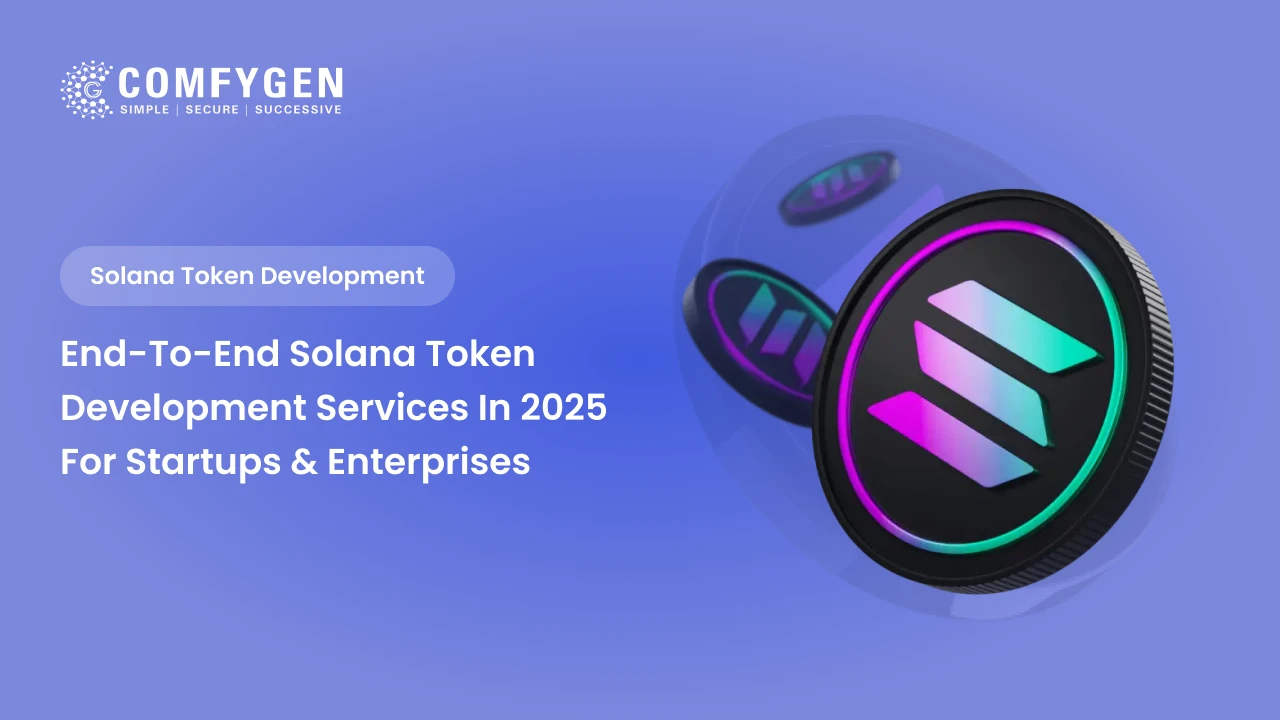Bitcoin vs Crypto Explained: What’s the Difference & Why It Matters?
Cryptocurrency is a hot topic in 2025, with Bitcoin leading the charge. However, the world of digital currencies is far from simple. If you’re new to the space or have been following crypto developments, you might be wondering: What’s the difference between Bitcoin and other cryptocurrencies? Understanding these differences is vital for anyone looking to invest, develop, or simply stay informed in the world of crypto.
What Is Cryptocurrency?
Cryptocurrency refers to a digital or virtual currency that uses cryptography for security. Unlike traditional currencies, cryptocurrencies are decentralized, meaning they operate on technology called blockchain, which is a distributed ledger maintained by multiple nodes (computers) across the world.
History and Evolution
Cryptocurrency’s journey began with the creation of Bitcoin in 2009 by the mysterious figure known as Satoshi Nakamoto. Since then, the crypto market has expanded, and thousands of other digital currencies (altcoins) have emerged, each with its unique features.
Key Characteristics
- Decentralization: No central authority controls the currency.
- Transparency: All transactions are recorded on the blockchain, making them visible to everyone.
- Security: Cryptography is used to secure transactions and control the creation of new units.
- Limited Supply: Many cryptocurrencies, including Bitcoin, have a fixed supply, making them resistant to inflation.
Ready to Dive Deeper into
the Crypto World?
Contact Now
What Is Bitcoin?
Bitcoin is the first and most widely known cryptocurrency. Created in 2009 by an anonymous entity under the pseudonym Satoshi Nakamoto, it was introduced as a peer-to-peer electronic cash system. Bitcoin offers a decentralized alternative to traditional banking and financial systems.
Satoshi Nakamoto and the Whitepaper
In 2008, Nakamoto published the Bitcoin whitepaper, detailing a revolutionary concept of a decentralized, digital currency that would bypass the traditional banking system. Bitcoin was designed to be deflationary, with a total supply of 21 million coins.
Why Bitcoin is So Popular
Bitcoin is often referred to as “digital gold” due to its store-of-value characteristics. It has achieved widespread acceptance as a hedge against inflation and has been incorporated into investment portfolios globally.
Bitcoin vs Cryptocurrency: Core Differences
Bitcoin is a Type of Cryptocurrency
Bitcoin is just one example of cryptocurrency. While it was the first cryptocurrency, the term “cryptocurrency” includes a broad range of digital assets, from Bitcoin to Ethereum, Solana, Ripple, and many others.
Limited Supply vs. Diverse Supply Models
Bitcoin has a fixed supply of 21 million coins, ensuring scarcity and deflationary characteristics. On the other hand, altcoins often have different supply models. For example, Ethereum doesn’t have a fixed supply, and coins like Dogecoin were initially created without a cap.
First-Mover Advantage vs. Innovation in Altcoins
Bitcoin has a first-mover advantage, having established itself as the go-to cryptocurrency. However, altcoins like Ethereum offer innovations such as smart contracts, enabling decentralized applications (dApps) and decentralized finance (DeFi) solutions.
Technology Base – Bitcoin vs. Other Blockchain Platforms
Bitcoin operates on a relatively simple blockchain focusing primarily on peer-to-peer transactions. In contrast, altcoins like Ethereum, Solana, and Cardano support complex applications like decentralized finance and smart contracts.
Use Cases: Digital Gold vs Utility Tokens
Bitcoin is widely considered digital gold, a store of value. Altcoins like Ethereum and Chainlink often have more practical use cases, such as smart contracts, decentralized apps (dApps), and enabling DeFi platforms.
Market Position and Price Volatility
Bitcoin has maintained its dominance in market capitalization and adoption, while altcoins can experience higher volatility and are often subject to rapid price swings. Bitcoin’s value is seen as more stable over the long term.
Common Misconceptions About Bitcoin and Cryptocurrency
Is Bitcoin the Only Cryptocurrency?
No, Bitcoin is just the first and most recognized cryptocurrency. There are thousands of other digital currencies, each serving different purposes and functionalities.
Can Other Cryptocurrencies Replace Bitcoin?
While altcoins are innovating, Bitcoin has established itself as the dominant store of value in the cryptocurrency market. It’s unlikely to be replaced, but other cryptocurrencies may emerge with new features or applications.
Why Understanding the Difference Matters
For Investors
As an investor, understanding the difference between Bitcoin and altcoins is crucial for portfolio diversification. Bitcoin might offer stability, while altcoins provide innovation and higher potential growth.
For Developers
For blockchain developers, understanding which blockchain platform to work on is key. Whether you’re creating smart contracts (Ethereum), DeFi apps (Solana), or experimenting with new consensus mechanisms (Polkadot), knowing the difference helps you choose the right platform for your project.
For Everyday Users
For users of crypto, understanding the different cryptocurrencies allows for informed decision-making. Whether you’re using Bitcoin for payments or exploring NFTs and DeFi with other tokens, each cryptocurrency has its ecosystem.
Bitcoin vs Altcoins: Quick Comparison Table
| Feature | Bitcoin | Ethereum | Solana | Dogecoin |
|---|---|---|---|---|
| Market Cap | $600B+ | $250B+ | $100B+ | $7B+ |
| Supply Model | Fixed (21M) | No Fixed Supply | No Fixed Supply | Infinite |
| Consensus Mechanism | Proof of Work (PoW) | Proof of Stake (PoS) | Proof of History (PoH) | Proof of Work (PoW) |
| Use Cases | Digital Gold | dApps, Smart Contracts | DeFi, Smart Contracts | Tipping, Memes |
| Transaction Speed | Slow (~10 min/block) | Fast (~15 sec/block) | Fast (~400 ms/block) | Fast (~1 min/block) |
Which One Should You Invest In?
Pros and Cons
- Bitcoin: Lower volatility, more institutional adoption, strong store of value.
- Altcoins: Higher risk, higher potential reward, more innovation.
Risk Factors
Bitcoin is considered safer compared to altcoins, but altcoins could provide higher returns for investors willing to take on more risk.
Long-Term Outlook
Bitcoin’s status as digital gold could make it a long-term investment for stability. Altcoins might provide better growth opportunities, especially those within emerging sectors like DeFi or NFTs.
Get Started with a
Free Consultation Today!
Contact Now
Conclusion
Understanding the difference between Bitcoin and other cryptocurrencies is essential for anyone participating in the crypto world. Bitcoin remains the leader in the space, but altcoins are rapidly innovating and providing a variety of use cases that Bitcoin doesn’t cover. Whether you’re an investor, developer, or casual user, recognizing these differences can help you make more informed decisions in 2025 and beyond.
Frequently Asked Questions (FAQs)
Is Bitcoin a cryptocurrency or not?
Yes, Bitcoin is the first cryptocurrency, built on the blockchain to allow peer-to-peer transactions without intermediaries.
What is the difference between Bitcoin and Ethereum?
Bitcoin is primarily a store of value, while Ethereum powers decentralized applications (dApps) and smart contracts.
Which is safer: Bitcoin or altcoins?
Bitcoin is generally considered safer due to its established network and stability, while many altcoins are more volatile and experimental.
Can Bitcoin be replaced by another cryptocurrency?
Although some altcoins offer new features, Bitcoin’s first-mover advantage and massive network effect make it unlikely to be replaced.
Why is Bitcoin more valuable than other coins?
Bitcoin’s scarcity (fixed supply of 21 million coins), security, and store of value characteristics have contributed to its higher valuation compared to many other altcoins.

Mr. Saddam Husen, (CTO)
Mr. Saddam Husen, CTO at Comfygen, is a renowned Blockchain expert and IT consultant with extensive experience in blockchain development, crypto wallets, DeFi, ICOs, and smart contracts. Passionate about digital transformation, he helps businesses harness blockchain technology’s potential, driving innovation and enhancing IT infrastructure for global success.
Based on Interest

How to Build a Crypto Trading Bot in 2025: Complete Development Guide for Beginners & Experts
Introduction The world of cryptocurrency never sleeps. With 24/7 markets and volatile price movements, the need for automated trading solutions has never…

Cryptocurrency Exchange Development: How to Create a Platform Like Binance or Coinbase
The rise of cryptocurrency has revolutionized the financial world, creating new avenues for investment, trading, and technology-driven finance. Among the major…

Layer 1 vs Layer 2 Blockchain: Key Differences, Use Cases & Which One Matters More in 2025
Introduction Blockchain technology, once the exclusive domain of cryptocurrencies, has now evolved into a robust tool for various industries, including finance, healthcare,…






